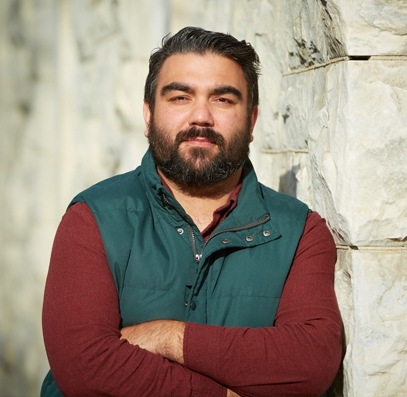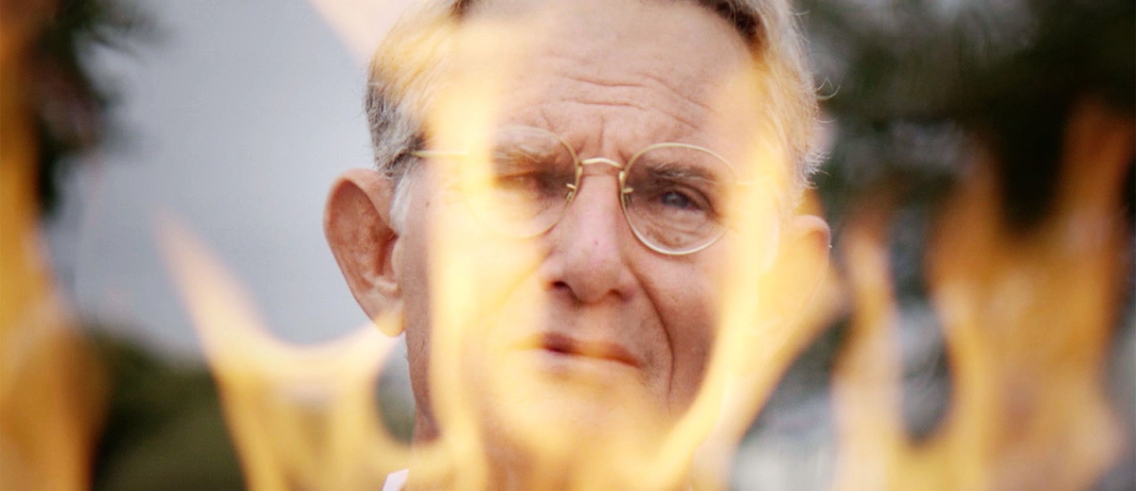Professor’s Documentary to Premiere on PBS “Independent Lens”

MIDDLEBURY, Vt. – On June 23, 2014, a Methodist minister pulled into a parking lot at a shopping center in Grand Saline, Texas, poured gasoline on himself, and set his body on fire to protest the town’s history of racism. The horrific incident pitted supporters of the minister against critics in a conversation that dredged up painful memories of the past and concerns about modern-day racism.
On December 17, PBS will air the film Man on Fire, produced by Middlebury Assistant Professor of Writing and Rhetoric James Chase Sanchez, which documents the incident and its aftermath.
It’s a deeply personal story for Sanchez, who grew up in Grand Saline and blogged about his memories of racism while he was a doctoral student at Texas Christian University. He never met the Reverend Charles Moore, but when he learned about Moore’s suicide, he felt a strong connection.
“Charles Moore self-immolated to protest racism in his hometown—my hometown—and I knew if I ever had a story to tell in my life it was this one,” said Sanchez. “I felt as if our stories intertwined and I could be an ambassador to better tell his story and tell my truth of Grand Saline.”
Sanchez felt strongly enough to make the incident the basis for his doctoral dissertation. Then, through a friend of a friend, he met film director Joel Fendelman, who was equally moved by the story of Charles Moore. In their first conversation, the two spoke on the phone for more than an hour, and Sanchez bonded with the director.
Taking on the title of producer offered Sanchez a crash course in filmmaking.

PBS publicity photo for the documentary film “Man on Fire,” produced by Middlebury Assistant Professor of Writing and Rhetoric James Chase Sanchez.
“When I signed on in that role, I really had no idea what the job would entail,” said Sanchez. “My primary work involved gathering interviews and setting up logistics for our shooting trips. I suspect that I interviewed 45 people or so for the film. In post-production, I worked one-on-one with the director to help create the final narrative.”
Creating a story on such a charged topic in his hometown came at a price, says Sanchez. “I never imagined how this work would affect my relationships with people in Grand Saline. I lost many friends, was openly critiqued on social media, and had many awkward encounters during our shoots. And the uncomfortable situations made me question the efficacy of this project. Was it worth it?”
Sanchez endured accusations of race-baiting and being perceived as a traitor to his town. He says he never had to ask whether it was worth it when he was writing his dissertation, but the film pushed the topic to a new level of public scrutiny.
“I knew if I didn’t tell this story, it quite possibly would never be told,” said Sanchez. “Thus, I think it was worth the risk. And when Independent Lens chose the film for their 2018–2019 season, I felt validated that this work was not important just for Joel and me but for others as well.”
Man on Fire, which is based on Sanchez’s doctoral research and a feature story in Texas Monthly, has been well received at film festivals and university screenings, winning an International Documentary Association Student Documentary Award in 2017. The film will air Monday, December 17, on PBS.

